Developing Health
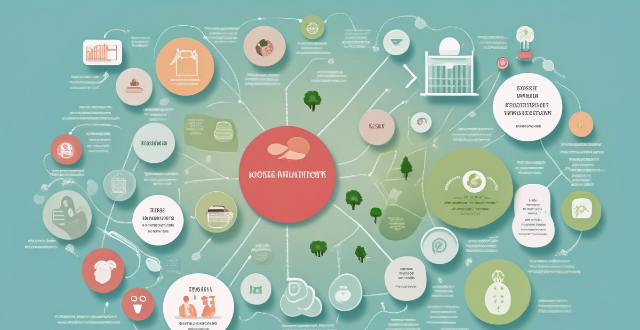
How can we improve access to healthcare services in developing countries ?
Improving access to healthcare services in developing countries is crucial for ensuring the well-being of individuals, regardless of their geographical location or economic status. Key strategies include investing in healthcare infrastructure, training and recruiting healthcare professionals, implementing community-based health programs, and utilizing technology and innovation. By adopting a multifaceted approach that addresses various aspects of the healthcare system, it is possible to make significant strides in improving access to quality healthcare services for all individuals living in developing countries.

How does climate debt affect developing countries ?
The concept of climate debt acknowledges the unequal impact of climate change on developing countries, which have contributed less to the problem but suffer more from its effects. This includes economic losses, social challenges such as health concerns and food insecurity, environmental threats like biodiversity loss and water scarcity, and political and legal issues including migration and international agreements. To address these challenges, initiatives like financial transfers, technology sharing, capacity building, debt forgiveness, and just transition policies are being implemented. Recognizing and supporting the needs of developing nations is crucial for achieving a more equitable and sustainable global future.
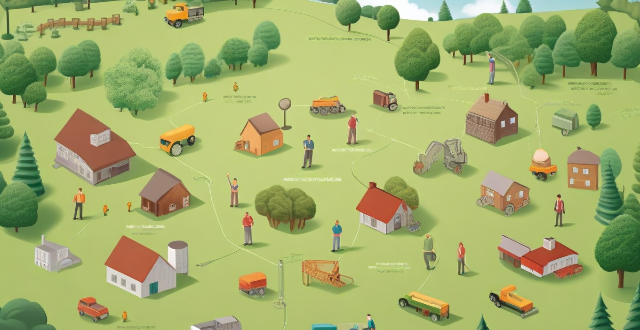
How do economic indicators differ between developed and developing countries ?
Economic indicators reflect the health and performance of a country's economy, with significant differences between developed and developing countries. Developed countries typically have higher GDP and GDP per capita values, lower inflation rates, more robust social safety nets, and attract high levels of foreign direct investment (FDI). They also score high on the Human Development Index (HDI), have more balanced trade positions, and while income inequality exists, there are often stronger welfare systems to mitigate its effects. On the other hand, developing countries often have lower GDP and GDP per capita, higher inflation rates, less developed social safety nets, and receive less FDI due to perceived risks. They also tend to have lower HDI scores, struggle with trade deficits, and face more pronounced income inequality. However, it is important to note that each country is unique and may exhibit characteristics that do not strictly align with typical developed or developing country traits. Economic indicators should always be considered within the context of a country's specific circumstances.

Can exercise reduce the risk of developing cardiovascular diseases ?
Cardiovascular diseases (CVDs) are a leading cause of death worldwide, and regular physical activity or exercise is one of the most effective ways to reduce the risk of developing them. Exercise helps improve blood circulation, lower cholesterol levels, reduce inflammation, manage weight, and improve glucose control. The American Heart Association recommends at least 150 minutes per week of moderate-intensity aerobic activity or 75 minutes per week of vigorous-intensity aerobic activity, along with muscle-strengthening activities at least two days per week.

How can developing countries benefit from implementing renewable energy solutions ?
Renewable energy solutions offer significant benefits for developing countries, including reduced energy costs, job creation, improved health and environmental quality, increased energy security, and climate change mitigation. By investing in renewable energy infrastructure, these countries can build more sustainable and prosperous futures for themselves and their citizens.

What role do developing countries play in climate governance ?
The article discusses the crucial role of developing countries in climate governance, highlighting their vulnerability to climate change, growing greenhouse gas emissions, active participation in international negotiations, innovation and technology transfer, financing and investment needs, and capacity building requirements. It emphasizes that developing countries are essential for achieving a successful outcome in the global fight against climate change.
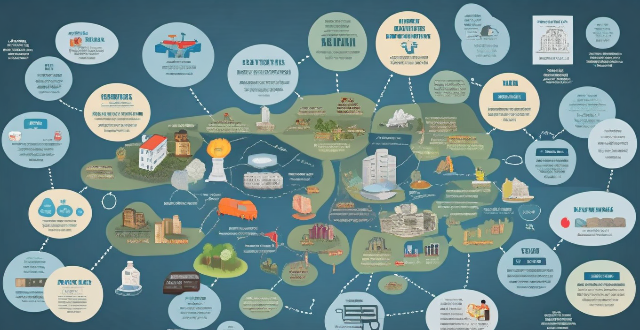
How do climate policies vary between developed and developing countries ?
This article compares the climate policies of developed and developing countries, highlighting differences in economic resources, technological capabilities, and political priorities. Developed countries have larger economies and more financial resources to invest in climate change initiatives, while developing countries face challenges due to limited financial resources. Technological capabilities also differ significantly, with developed countries possessing advanced technologies for renewable energy and emission reduction strategies, while developing countries lack such infrastructure. Political priorities also vary, with developed countries often prioritizing climate action, while developing countries may prioritize other pressing issues. The article concludes that international cooperation and support mechanisms are crucial for bridging these gaps and fostering a global response to climate change that is both equitable and effective.

How does engaging in sports impact the likelihood of developing a gaming disorder ?
Engaging in sports can significantly reduce the likelihood of developing a gaming disorder by improving mood and mental health, enhancing sleep quality, increasing socialization, promoting peer pressure and influence, limiting availability for gaming, and fostering a goal-oriented mindset. Maintaining a balanced lifestyle with various activities beyond gaming is essential for overall well-being and preventing potential addictions.
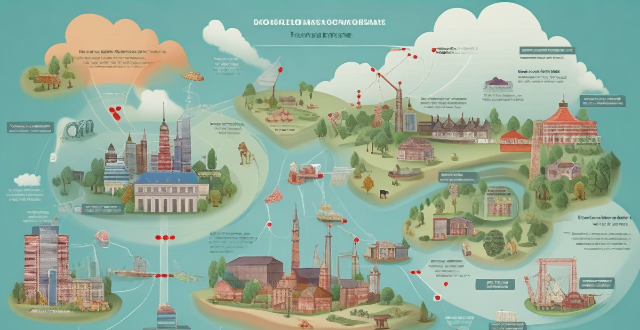
Can developing countries achieve the same climate goals as developed ones ?
This discussion explores the complexities surrounding whether developing countries can achieve the same climate goals as developed ones. It outlines the challenges such as financial constraints, infrastructure gaps, and socioeconomic barriers, but also highlights opportunities like leapfrogging technology, policy innovations, and cultural adaptability. The conclusion suggests that with international support, strategic policy-making, and a focus on sustainable development, developing nations can make significant progress towards sustainability.

How does vaccine inequality impact developing countries ?
Vaccine inequality significantly impacts developing countries by affecting their public health, economy, and social stability. Limited access to vaccines increases mortality and morbidity rates, weakens healthcare systems, and leads to economic losses and limited growth. It also exacerbates poverty and inequality and can contribute to social unrest and instability. Addressing vaccine inequality is crucial for global health equity and sustainable development.
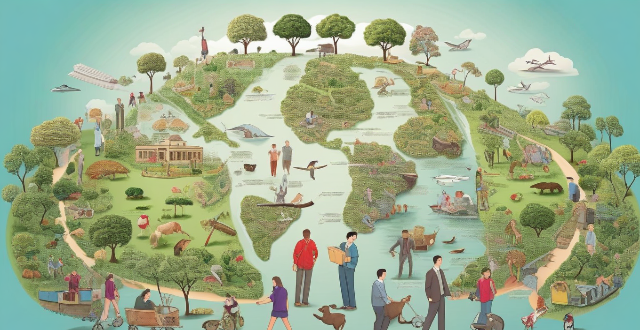
How do developing countries participate in international climate agreements ?
Developing countries play a crucial role in the global effort to combat climate change. Their participation in international climate agreements is essential for achieving a sustainable future for all nations. This article discusses how developing countries can engage with these agreements and contribute to global climate action by prioritizing education and awareness, seeking technical assistance, accessing financial and technological support, ensuring inclusivity and representation, building capacity through institutional strengthening and training programs, and engaging in collaboration and partnerships. By addressing these key points, developing countries can play a significant role in shaping global climate policy and contributing to a more sustainable future for our planet.

How do carbon credit systems impact developing countries ?
Carbon credit systems can have both positive and negative impacts on developing countries, including economic development, environmental benefits, technology transfer, market risks, social impacts, and environmental concerns. Policymakers and stakeholders must carefully consider these impacts when designing and implementing carbon credit projects in developing countries.

Can developing countries meet the same climate commitments as developed ones ?
Climate change is a global challenge that requires collective action from all countries, regardless of their level of development. However, the question arises: can developing countries meet the same climate commitments as developed ones? This article discusses the differences in economic and technological capabilities, international support and collaboration, and national priorities and policy choices between developed and developing countries. While there are significant differences between the two groups of countries in terms of their ability to meet stringent climate commitments, international support and collaboration can help bridge these gaps. Additionally, national priorities and policy choices play a crucial role in determining whether developing countries can successfully implement climate actions while balancing other developmental goals.

What are the challenges faced by developing countries in emission reduction ?
Developing countries face numerous challenges in reducing their greenhouse gas emissions, including lack of financial resources, technological constraints, socio-economic factors, policy and regulatory challenges, cultural and educational barriers, and natural resource availability. These challenges highlight the complex nature of emission reduction efforts in developing countries and underscore the need for international cooperation, financial assistance, and technology transfer to support their transition to a low-carbon future.

Is wind energy a viable option for developing countries ?
Is wind energy a viable option for developing countries? Yes, wind energy offers numerous benefits such as cost-effectiveness, sustainability, job creation, and improved energy security. However, several challenges must be addressed including infrastructure needs, financing barriers, policy development, and environmental considerations. With careful planning and strategic investments, wind energy can indeed be a viable option for developing countries looking to build a sustainable future.

What role do developing countries play in climate summit discussions ?
Developing countries play a significant role in climate summit discussions by contributing to mitigation efforts, adaptation strategies, and technology transfer. However, they face challenges such as limited resources, unequal responsibility, and lack of representation. It is crucial to recognize and address these challenges to ensure that developing countries are adequately represented and supported in climate negotiations.

Can developed and developing countries achieve carbon neutrality at the same pace ?
The article discusses the challenges and potential solutions for developing countries to achieve carbon neutrality at the same pace as developed countries. The key differences between developed and developing countries in terms of economic development, technological advancements, and political will are highlighted. Developed countries have higher GDP per capita, more resources for research and development, and greater financial capacity to invest in renewable energy infrastructure. In contrast, developing countries have lower GDP per capita, limited resources for research and development, and less financial capacity to invest in renewable energy infrastructure. Technological advancements also play a crucial role in achieving carbon neutrality. Developed countries have advanced technology and innovation in clean energy sectors, access to cutting-edge research facilities, and well-established industries with experience in implementing sustainable practices. In contrast, developing countries have emerging technology and innovation in clean energy sectors, limited access to advanced research facilities, and infant industries with less experience in implementing sustainable practices. Political will is another factor that affects the pace of achieving carbon neutrality. Developed countries have stronger political commitment to addressing climate change through policy measures, more established regulatory frameworks for promoting renewable energy adoption, and greater public awareness and support for environmental issues. In contrast, developing countries have varying levels of political commitment to addressing climate change through policy measures, less established regulatory frameworks for promoting renewable energy adoption, and lower public awareness and support for environmental issues due to other pressing concerns such as poverty and healthcare. Developing countries face several challenges in achieving carbon neutrality, including lack of financial resources, technological barriers, and infrastructure challenges. Potential solutions for developing countries include international cooperation and funding, capacity building and education, and policy interventions and regulatory reforms. By working together through these solutions, both developed and developing countries can make significant progress towards a more sustainable future.

What role do developing countries play in the Paris Climate Agreement ?
The Paris Climate Agreement, adopted in 2015, is a global response to the urgent need for action on climate change. It represents a significant step forward in international efforts to mitigate the effects of climate change and adapt to its impacts. Developing countries play a crucial role in this agreement, as they are disproportionately affected by climate change and have unique challenges and opportunities in addressing it. Key Points: - Many developing countries are located in regions that are particularly vulnerable to the impacts of climate change, making their participation essential for building resilience and adaptive capacity. - Developing countries have significant potential for mitigating greenhouse gas emissions through sustainable development pathways, renewable energy deployment, and forestry activities, which are vital for achieving the long-term temperature goals set out in the agreement. - The Paris Agreement recognizes the need for developed countries to provide financial and technological support to help developing countries implement their climate actions, which is crucial for enabling these countries to build low-carbon, climate-resilient economies. - Under the Paris Agreement, each country submits National Determined Contributions (NDCs), which outline their planned contributions to mitigating climate change and adapting to its impacts. Developing countries have submitted a wide range of NDCs, reflecting their diverse circumstances and priorities. - The Paris Agreement acknowledges the need to address loss and damage associated with the impacts of climate change in developing countries, particularly in vulnerable communities. This includes both slow-onset changes and sudden-onset events, such as floods and droughts. - The agreement emphasizes the importance of capacity building for developing countries to enhance their ability to implement climate actions effectively, including improving institutional arrangements, strengthening technical expertise, and fostering knowledge sharing. In conclusion, developing countries are integral participants in the Paris Climate Agreement, bringing unique perspectives, challenges, and opportunities to the global effort to combat climate change. Their active engagement is critical for achieving the goals of the agreement and ensuring a more equitable and sustainable future for all.

How can countries improve their preparedness for global health emergencies ?
Countries can improve their preparedness for global health emergencies by strengthening healthcare infrastructure, developing surveillance and early warning systems, enhancing international cooperation, improving public health education and awareness, and establishing contingency plans and policies.

How do developing countries benefit from the Clean Development Mechanism (CDM) ?
How Developing Countries Benefit from the Clean Development Mechanism (CDM) The Clean Development Mechanism (CDM) of the Kyoto Protocol brings numerous benefits to developing countries, including technology transfer, sustainable development, and environmental advantages. It also enhances their capacity building, global engagement, and influences policy-making towards sustainability. Overall, the CDM aids in reducing emissions while fostering economic growth and environmental conservation.

Is it ethical for developed countries to consume more resources than developing ones ?
The question of whether developed countries should consume more resources than developing ones is complex, involving considerations of equity, environmental stewardship, economic implications, and social-political dynamics. Ethical concerns include fair distribution of resources and meeting basic needs in developing nations, as well as the responsibility to reduce ecological footprints and mitigate global climate change. Practical considerations involve economic growth, infrastructure needs, national sovereignty, and compliance with international agreements. While ethical arguments exist against overconsumption by developed countries, economic realities and political factors complicate the issue. Many developed nations are adopting sustainable practices, and international cooperation is essential for equitable resource management and conservation. Striking a balance between current needs and future preservation is a universal challenge.

How can developing countries participate effectively in global climate cooperation ?
Developing countries can participate effectively in global climate cooperation by building capacity for climate action, promoting sustainable development pathways, engaging actively in international climate negotiations, and leveraging domestic resources and partnerships. This involves developing national climate policies and strategies, strengthening institutional capacity, integrating climate considerations into national development plans, fostering innovation and technology transfer, participating in global climate dialogue, seeking international support and financing, mobilizing domestic resources for climate action, and fostering cross-sectoral partnerships. By taking these steps, developing countries can contribute significantly to mitigating climate change and adapting to its impacts while promoting sustainable development and poverty reduction.

In what ways can developing countries participate effectively in global climate governance ?
**How Developing Countries Can Effectively Participate in Global Climate Governance** Developing countries are pivotal in global climate governance due to their disproportionate impact from climate change. Their effective participation can be achieved through several strategies: 1. **Capacity Building**: This involves enhancing educational programs to raise climate awareness and training local experts. It also includes investing in sustainable infrastructure and establishing research institutions. 2. **Policy Integration**: Countries should enact climate-related legislation, set emission reduction targets, and ensure policy alignment across different sectors while engaging stakeholders. 3. **Finance and Investment**: Access international and domestic funds for climate action, and make smart investments in renewable energy and sustainable agriculture. 4. **Technology Transfer and Innovation**: Developing countries should form technology partnerships, create exchange platforms, and encourage local innovation through R&D and incentives. 5. **Participation in International Negotiations**: They should prepare well for negotiations, build coalitions, advocate for their interests, and use forums for dialogue at international conferences. Through these strategies, developing countries can not only protect themselves but also significantly contribute to the global fight against climate change.

How can we address the lack of climate education in developing countries ?
Addressing the lack of climate education in developing countries requires a multi-faceted approach that considers local contexts, cultural values, and educational infrastructures. Strategies include prioritizing climate education at the policy level, enhancing access to educational resources, training and supporting educators, community engagement and empowerment, building sustainable infrastructure, research and development, and international cooperation and exchange. By implementing these strategies, developing countries can work towards bridging the gap in climate education and ensure that future generations are equipped with the knowledge to confront the challenges of our changing climate.

Can carbon credits be a sustainable source of income for developing countries ?
The article explores the potential of carbon credits as a sustainable source of income for developing countries, highlighting their benefits in revenue generation, sustainable development, and international cooperation. However, it also underscores the challenges such as market volatility, implementation complexities, and ensuring environmental integrity. The conclusion emphasizes that with robust frameworks and transparent monitoring, carbon credits can be a cornerstone of sustainable development strategies for developing countries.

What are the key challenges in developing countries for adapting to climate change ?
Adapting to climate change is a complex and multifaceted challenge that affects all countries, but developing nations often face unique obstacles due to their limited resources, infrastructure, and capacity. Here are some of the key challenges they encounter: 1. **Economic Constraints**: Many developing countries lack the financial resources needed to implement large-scale adaptation measures. Economies heavily reliant on agriculture, fishing, or tourism are particularly vulnerable to climate impacts. The cost of technologies required for adaptation can be prohibitively expensive. 2. **Infrastructure & Technology**: Existing infrastructure may not be designed to withstand increased extreme weather events. There is often a lack of access to advanced technologies that could aid in adaptation efforts. 3. **Socio-Political Factors**: Unstable political environments can hinder long-term planning and investment in adaptation strategies. Marginalized communities often have less access to resources and information, making them more vulnerable to climate impacts. Climate change can cause mass migrations, straining social services and increasing tensions. 4. **Information & Education**: Reliable climate data is essential for adaptation planning, but many developing countries lack this data. Limited education about climate change can lead to a lack of understanding about its risks and the need for adaptation. 5. **Health Impacts**: Warmer temperatures can expand the range of disease vectors like mosquitoes, leading to increased health risks. Extreme weather events can disrupt healthcare services, making it difficult to treat climate-related health issues. 6. **Environmental Concerns**: Climate change accelerates the loss of biodiversity, which can have cascading effects on ecosystems and human well-being. Pressure to convert forests to agricultural land increases vulnerability to climate impacts and reduces carbon sinks. 7. **Conclusion**: Adapting to climate change requires a comprehensive approach that addresses these challenges head-on. It involves building resilience through economic diversification, strengthening infrastructure, enhancing governance and social systems, improving access to information and education, protecting public health, and conserving the environment. For developing countries, overcoming these challenges is not just about survival; it's about ensuring a sustainable future where growth and development can thrive amidst a changing climate.

How does exercise improve cardiovascular health ?
This essay explores the ways in which exercise can improve cardiovascular health. It explains how regular physical activity strengthens the heart muscle, increases blood flow, and lowers blood pressure. The essay also discusses how exercise can reduce risk factors for cardiovascular disease, such as obesity, diabetes, and high cholesterol levels. Additionally, it highlights the positive effects of exercise on mental health and well-being, including stress reduction, depression management, and improved quality of life. Overall, the essay emphasizes the importance of regular exercise for a healthy lifestyle and encourages readers to incorporate physical activity into their daily routines.

What is the importance of dental hygiene in overall health ?
The Importance of Dental Hygiene in Overall Health Dental hygiene is an essential aspect of maintaining good overall health. Poor dental hygiene can lead to a range of health problems, including gum disease, tooth decay, and bad breath. In this article, we will explore the importance of dental hygiene in overall health and provide tips for maintaining good oral health. How Dental Hygiene Affects Overall Health Gum Disease: Gum disease, also known as periodontal disease, is caused by the buildup of plaque on the teeth and gums. If left untreated, it can lead to inflammation, infection, and even tooth loss. Gum disease has been linked to several systemic health problems, including heart disease, diabetes, and respiratory disease. Tooth Decay: Tooth decay occurs when bacteria in the mouth produce acids that eat away at the enamel on the teeth. This can lead to cavities, pain, and even tooth loss if left untreated. Tooth decay can also affect overall health by causing digestive problems and nutritional deficiencies. Bad Breath: Bad breath, also known as halitosis, is often caused by poor dental hygiene. It can be embarrassing and may even affect social interactions. In some cases, chronic bad breath can be a sign of underlying health problems, such as gum disease or respiratory infections. Tips for Maintaining Good Oral Health Brush Your Teeth Twice a Day: Brushing your teeth twice a day with fluoride toothpaste helps remove plaque and bacteria from your teeth and gums. Floss Daily: Flossing daily helps remove plaque and bacteria from between your teeth where your toothbrush cannot reach. Visit Your Dentist Regularly: Regular dental checkups and cleanings can help identify and treat potential problems early on before they become more serious. Eat a Healthy Diet: Eating a healthy diet low in sugar and high in nutrients can help keep your teeth and gums healthy. Drink Water: Drinking water throughout the day helps rinse away food particles and bacteria in your mouth. Avoid Tobacco Products: Smoking or using other tobacco products can increase your risk of developing gum disease and other oral health problems. Limit Alcohol Consumption: Drinking too much alcohol can dry out your mouth and increase your risk of developing gum disease and other oral health problems.

Are there specific supplements recommended for women's health upkeep ?
The article provides a summary of the top supplements recommended for women's health, including Vitamin D, Calcium, Iron, Folic Acid, and Omega-3 Fatty Acids. These supplements support bone health, muscle function, immune function, cardiovascular health, cognitive function, and overall energy levels. The article emphasizes the importance of consulting with a healthcare provider before starting any new supplement regimen to ensure safety and effectiveness.

What role does public health play in the implementation of biosafety policies ?
Public health is crucial for implementing biosafety policies, which aim to contain and manage biological agents that may pose a risk to human health, animal health, or the environment. Public health professionals play key roles in surveillance and disease detection, risk assessment and management, laboratory biosafety, vaccination programs, public education and awareness, policy development and implementation, emergency response, and international collaboration. By monitoring disease trends, assessing risks, maintaining laboratory safety, promoting vaccination, educating the public, developing policies, responding to emergencies, and collaborating internationally, public health professionals help protect individuals and communities from biological hazards.